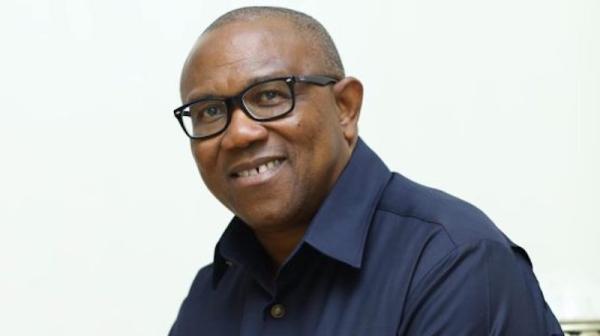
Dr Patrick Olusanmi Adebola , Executive Director , CRIN
We have heard it so much said, so CEOAFRICA crew drove through the busy road of new garage/Ijebu Ode to the Cocoa Research Institute of Nigeria, CRIN, to see with our eyes, because seeing they say is believing. We went; we saw and need no convincing that Dr Patrick Olusanmi Adebola has a magic wand to turning things around.
‘Leadership’, as some would always say, is a call to service, as well as a privilege. What one does with such privilege matters a lot, as that could be a legacy that would outlive one. This surely, could have propelled Dr. Patrick Adebola, who was appointed in October, 2020, by the Federal Government, as the Executive Director (ED), Cocoa Research Institute of Nigeria, CRIN, to plant his footprints in the sand of time. Prior to his appointment, he had been engaged as a researcher in the institute for more than two decades, between 1993 and 2005.
Dr. Patrick Adebola, just like few men of vision, never allowed the euphoria of celebrations that could have accompanied such honour to becloud his vision and focus. He immediately rolled up his sleeves and hit the ground running. He understood that there was much to be done in order to get the institute back on track, so that it may realize the dream behind its establishment in 1964.
The institute was assailed in all fronts. Staff morale was at its ebb due to unsettled welfare issues. Infrastructures were at various stages of decay. To put it bluntly, there was a general atmosphere of industrial disharmony and uncertainty. One is left with no other option than to imagine what the fate of research then could be.
Adebola was hungry to make his impact felt and he knew that human capital was the engine room of the institute, little would anyone wonder why he had to wade into the issues immediately. The plant geneticist held series of consultations and management meetings, where sincere and far-reaching commitments, on how to reverse the trend, were made.
The ED, whose career landmark has always been strong team spirit and an uncanny ability to find solutions to complex trajectories, commenced the process of settling backlog of salaries, allowances and other welfare issues; of which some dated back to 2017. Old staff and pensioners were carried along under the ‘staff first’ policy. The style has helped in confidence building and has also fostered unity among the management and staff.
Safety and security of lives and properties in the institute was also accorded priority, as part of the human capital complete package. The rising cases of insecurity across the country, challenged the CRIN boss to think of the most proactive measures to take.
The management embarked on the over 5KM perimeter fencing of CRIN headquarter, in addition to the engagement of over a dozen strong operatives to boost the existing security architecture. The rangers, in their trademark cute uniforms, are everywhere in the head office. The effect of this is happy staff, who feel protected in the discharge of their daily duty without fear of intimidation and invasion.
The management also refurbished more than a dozen and half vehicles, most of which had been abandoned for years at different stages of disrepair. The vehicles are now on the road to ease movement of goods and services. In a related development, new vehicles and motorcycles were acquired by the institute.
To make the working environment exciting for all categories of staff, the boss embarked on massive remodeling, renovation and furnishing of offices in the head office and outstations. The administrative block was given a complete turn-around that makes it wear a new look.
Solar-powered lights and electricity power generating sets were also installed to boost power supply. A 24-hour all round internet access is now guaranteed, following the management’s upgrade of the bandwidth from 4 mbps to 100 mbps. Management has also restored the culture of regular training for all categories of staff.
In addition, to boost the performance of its core research mandate, a modern fermenter has been built at the head office. The facility is equipped with modern tools and set to transform the process of fermentation to meet the internationally acceptable modern standard.
Tapping into his international connections, Dr. Adebola sustained the complete construction of Cocoa Flavour Laboratory, with cutting edge technology. The lab which is the biggest in Africa, is being constructed in partnership with the World Cocoa Foundation, WCF.
When it becomes fully operational, the lab will be a reference point for research in the continent. Adebola puts it this way: “It is going to be a reference lab for cocoa flavours in Africa. You can bring your samples and we will test their flavours. This will help farmers get premium prices for their specific flavours of cocoa. The lab will also test all types of cocoa genotypes.”
The mother of all achievements in term of infrastructure is the ongoing construction of a mega multipurpose hall. The 1,500-capacity gothic edifice is close to completion and indeed beautiful to behold. Apart from the hall, a big, beautiful and spacious central laboratory is close to completion.
The hall is expected to boost the revenue base of CRIN. Other efforts targeted at improving Internally Generated Revenue, IGR, include the establishment of a sachet water factory and another for bee keeping and honey production. Similarly, the long abandoned cocoa bakery in the institute has been rehabilitated. Subsequently, the tasty CRIN Cocoa Special Bread is back to the market.
There is also plan for using cocoa pod husk for soap making. That has been in opration and is a product that people love.
2021 was a very good year for the institute. Adebola-led administration received 100% funding from the Federal Government through the Federal Ministry of Agriculture and Rural Development, which was judiciously and effectively used to achieve its objectives. Most of the vision set for 2021 was 100% percent accomplished by him and his team.
One of the things that they achieved is their primary mandate of making provision for farmers, in terms of giving them good planting materials for their various farming projects. In 2021, the Cocoa Research Institute of Nigeria, in partnership with the Federal Ministry of Agriculture and Rural Development, was able to raise about five hundred thousand seedlings of cocoa that were distributed to farmers across all the cocoa producing states in the country. The materials that were generated and distributed to farmers are healthy and disease-resistant. Adebola believes that in achieving the goal of increasing the productivity of cocoa in Nigeria, he has to start from good planting materials to farmers; this was one of his achievements in 2021.
Apart from that, the CRIN scientists have been able to visit several farms in the country to provide expertise advice to farmers, in terms of the quality or fertility of their soil and how to ameliorate the declining fertility. They have also been able to visit farms to provide advice, in terms of the good agronomy practices that they are supposed to imbibe, to make their farms very productive. For example, the scientists visited farms across Ondo and Cross River states, where they advised farmers on pruning and cultivating their cocoa farms in order to bring them back to life and make them more productive.
Aside that, in 2021, the CRIN has been able to train stakeholders, particularly farmers, in the best agricultural practices, including planting, processing, packaging and storage. Adebola’s administration did all these in 2021 and he believes that they will assist farmers to get best quality cocoa beans which can be exported or even reduce and eliminate the rejection of Nigeria’s cocoa beans in international market.
Also, CRIN was able to go into proper research on plantation. In 2021, at the headquarters, they have been able to establish three hectares of cocoa research plantation which they established using the elite materials that they have in their germ planting pot. Equally, they have been able to reach out to cashew farmers in terms of what they can do with their surplus cashew apples. They trained them into processing the cashew apples into juice in Ogbomosho and some other areas.
Adebola’s scientists have been able to process cocoa beans into the flavour quality. They established the cocoa flavour lab and the lab became functional in 2021. The lab has been accredited and known to be one of the best cocoa flavour laboratories in Africa. The lab is functioning very well and the entire cocoa stakeholder, especially the exporters, the producers and their processors can now bring samples of their cocoa beans into CRIN’s cocoa flavour lab and run them.
As briefly mentioned earlier, in 2021, the Adebola-led administration was able to put a very beautiful fence across the CRIN. It is a big achievement because there was no fence since the institute was established in 1964. As a result of no fence, they had problems of pilfering of research materials and encroachment of land by neighboring communities. The administration was able to put a very beautiful fence across the CRIN in 2021 through the fund provided by the Federal Government. Apart from that, CRIN has now got fermenter building which the executive director founded when he came into office.
Adebola, whose dream is to restore the glory of CRIN and contribute in making agriculture a foreign exchange earner for the country, is well prepared in learning and character, for his current mission. Born a Prince, in a large polygamous family with 21 siblings, in his childhood years, nothing suggested the international dimension his career would take. But his life is another confirmation of the African saying that ‘what a child longs to eat does not give him belly aches.’ His story reads like an exciting Nollywood script.
In his secondary school days, at St. Augustine’s College, Kabba in Kogi state, his hometown, Patrick Adebola was among the most brilliant science students. As such, many of his teachers and fellow students had expected him to pursue a career in medical sciences or engineering, regarded as the exclusive reserve of brilliant students. But the boy who literally grew in the farm while in St. Mary Primary School and had always been fascinated by the mystery of plant germination, had his mind set on agriculture.
After his West Africa School Certificate Examinations, WASCE, the University of Ilorin admitted him for Biology. It was fortuitous however, that while in his second year, the department split into three namely, Botany, Zoology and Microbiology. The authorities promptly transferred him to Botany.
In 1987, when he completed the degree program, Adebola was among the best in the department, with Second Class Upper Division.
He was posted to the old Benue State for his mandatory national youth service. The quest for more learning lured him back to his alma mater for Master’s degree in Plant Genetics and Breeding which he completed in 1990. With that in the kitty, he was offered employment as a teacher. He taught Biology and Mathematics in his former secondary school for more than three years, before CRIN poached him as a Research Officer.
Adebola immediately enrolled for and earned his PhD in Advance Genetics and Plant Breeding, from UNILORIN, 2003. Shortly after, the young scholar won a completive scholarship to South Africa for a postdoctoral fellowship. He has since been working in top and sensitive positions in acclaimed international bodies.
While in South Africa, Adebola was Director and Technical Lead at the Agricultural Research Council, (ARC-VOPI) of South Africa. After a decade stay on the job, he moved to Liberia as Deputy Director General, Africa Rice Centre, a project of the Central Agricultural Research Institute.
Until his current appointment, Adebola was Project Lead and Senior Scientist at the International Institute for Tropical Agriculture, IITA, where he successfully coordinated the Africa Yam project in Nigeria, Ghana, Benin and Cote d’Ivoire, its four target countries.
Less than two years in the saddle, Adebola has brought his trademark magic wand to bear on his job. CRIN is now fully back on track on its core assignment of research and development, in the five mandate crops of Cocoa, Cashew, Coffee, kola and Tea. Improved varieties of seedlings are being mass-produced and distributed to farmers. Regular training of farmers and other stakeholders on Good Agricultural Practices (GAP) are also being carried out.
However, the institute is not without challenges, in terms of funding. The institute relies mostly on the Federal Government for funds and the visionary Dr Adebola will always ask for more, due to the many things that are still needed to be done. The institute has about 1000 members of staff as well as stations across the six geopolitical zones in the country. Each of those stations has members of staff too. The purpose of establishing such stations is to be able to serve farmers in the areas where those sub stations are located. His ingenuity has also led to setting the stone rolling for possible self-sustenance in the near future.
Most of those substations are not so good enough. One of their challenges is additional funding to be able to upgrade their facilities. Those substations are used for raising seedlings and reaching out to farmers at the “hinter land”. They have some scientists, that are located there, who the farmers around those areas can reach out to for necessary advice. Hence, they are appealing to the government for more funding to be able to upgrade the facilities in those substations.
In addition, there are issues of land encroachment at those substations. The host communities now clamour for compensations, threatening parts of the lands. The institute is appealing to the government to come in, especially for fencing those substations. Such request shows the passion Dr Adebola has for the institute. His vision is not only to make the headquarters enviable, but also, to ensure that the wind of development blows at the various stations. Just as an African proverb illustrates that when a mother is in a place of comfort, she remains restless until she is sure that all her children have become more comfortable than she is, herself, Dr Adebola has demonstrated that he really wants the substations to be of international standard too.
Research costs a lot, ranging from power supply, apparatuses, skilled technicians, just to mention few. The epileptic supply in the country affects the institute. In order to ensure CRIN’s research projects are of international standard, ED incurs additional cost for refueling the generators regularly, considering the cost of petroleum products in the country. More funds are needed, in addition to creating a source of regular water supply, which has bedeviled the institute for decades.
It is in the records that the staff quarters of institute were built over 50 years ago and the institute has grown, having both senior staff and junior staff. The quarters were also built with the capacity and staffing of those years, which is no longer the same today. It is often said that however glamorous a man’s house is, an old tattered broom within the compound could make a guest detest and disdain such house. The nature of the institute’s staff quarters could discourage people from other countries from patronizing her world-class research facilities. This is why the Director, in his wisdom, draws attention to it too. Dr Adebola is indeed a rare gem, having achieved much more with much less resources.






















